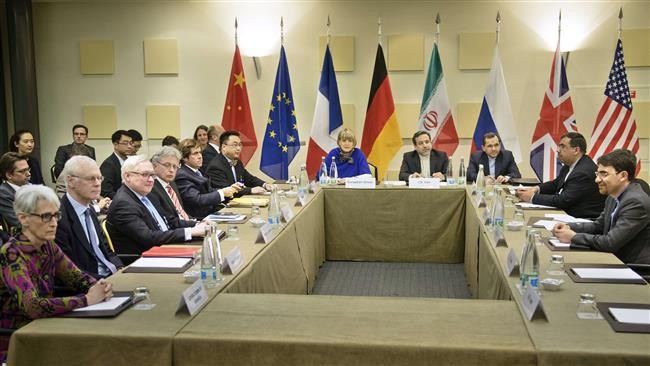(VOVworld)- The P5+1 group is exerting every effort to reach a final deal on Iran’s nuclear program before the deadline of June 30. However, this deadline is likely to be missed as involved parties want to reach a deal that benefit them most.

Photo:AFP |
The Deputy-ministerial level negotiation between Iran and the P5+1 group which comprises of the UK, China, France, Russia, the US and Germany has ended without progress due to pending differences. The involved parties had different views on the roadmap of lifting the West sanctions against Iran and the inspection of Iran’s nuclear sites. Iran has always denied accusations that the country is developing nuclear bombs and insisted that its nuclear programs are for peaceful purposes. That’s why Tehran ruled out foreign inspection of its military sites.
In the latest development, the UN Security Council has adopted a resolution extending the mandate of a panel of experts monitoring the implementation of sanctions against Iran for a year until July 9, 2016. The 15-member body made the decision by "determining that proliferation of weapons of mass destruction, as well as their means of delivery, continues to constitute a threat to international peace and security."
Abundant determination, lacking trust
Iran and the P5+1 group approved a framework agreement in April, 2015 and set the deadline of June 30th to achieve a final deal after missing two other deadlines last June and November. At this round of talks, involved parties didn’t want to miss the opportunity nor waste efforts of negotiations over the past 20 months. But they all want a deal that benefit them most.
In all rounds of negotiation, Iran has attempted to make the least concession. Over the past few days, while the US and the West are hastening to reach a due agreement, Iran has exercised calmness. Speaking after the negotiation ended, Head of Iran’s negotiation delegation and Deputy Foreign Minister in charge of Iran’s legal and international affairs, Abbas Araqchi said if Iran and the P5+1 group make a deal, it will be binding within a certain time span. The Iranian diplomat said that mutual distrust created a gap between parties in the negotiation process and warned that provisions in the draft final deal is at risk of being inverted if involved parties break their commitments and the situation would return to the time before the deal is signed.
Race enters final stage
Being worried about 20 months of negotiations and tireless efforts being wasted in the last minutes, the US administration showed its determination to reach the deal by June 30th and said it didn’t intend to prolong the negotiation. Signing a deal with Iran is not just one of President Barack Obama’s priorities but also one of his goals in easing the tension in the Middle East. US Under Secretary of State Anthony Blinken stated that Iran met all requirements in the draft nuclear deal with the P5+1 group.
But split remains with the P5+1 group. France blamed the US for being over concessive to Iran and that France will not sign the deal unless Iran’s military sites are inspected.
International negotiations on Iran’s nuclear programs have been carried out for more than a decade. Both Iran and the US, the two key members of the negotiation, show their determination to reach a deal and not to miss the deadline of June 30th once again because a deal signed will bring benefits for both sides. Settling Iran’s nuclear issue is the prerequisite for the US and Iran to cooperate in addressing burning issues in the Middle-East and coping with IS. To this end, involved parties need to compromise.
Anh Huyen